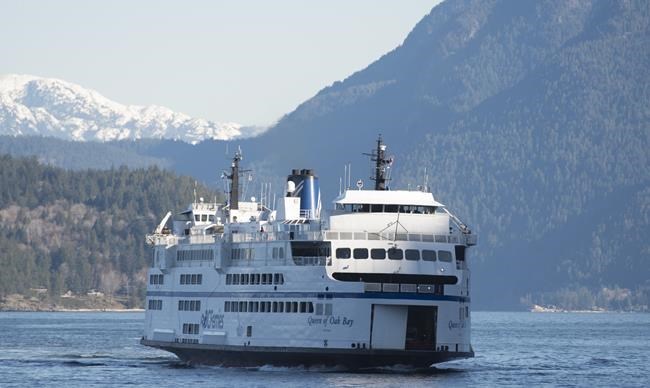VANCOUVER — British Columbia's record wildfire season has affected travel bookings in some areas, but other regions have seen continued tourism demand despite their proximity to active blazes.
Jason Upton, manager of the Lac Le Jeune Nature Resort south of Kamloops, says the resort is open but remains on evacuation alert, and maintaining bookings is difficult since the Ross Moore Lake fire is burning just a few kilometres away.
Upton says the resort had been close to selling out for the entire upcoming long weekend, but the threat of the nearby fire has led to cancellations by all but three guests.
Brian Cant, acting president at 4VI, a travel and tourism agency on Vancouver Island, says the closure in June of Highway 4 to Tofino caused a "small dip" in overall trips to the island that month.
With no fires of note currently burning on Vancouver Island, Cant says in a statement that operators have indicated the August long weekend will remain "the busiest time of the year" for tourism in the region.
It's also expected to be the busiest long weekend of the year for BC Ferries, which has been plagued by cancellations, long delays and incorrect website information, but CEO Nicolas Jimenez said at a news conference this week that every vessel will be operating at full capacity.
Kootenay Rockies Tourism CEO Kathy Cooper says there has been a drop in business in parts of the region, but places like Cranbrook — 15 kilometres south of the active St. Mary's River wildfire — have actually seen bookings rise this summer as the smoke clears from many communities.
Cooper says in places where bookings have fallen, factors such as high gas prices may be having a bigger impact than the threat of wildfires.
"In some areas — for example, over in the West Kootenays — numbers are not as high as they were last year," she says. "But we don't necessarily attribute that specifically to wildfires. There could be a lot of different cost factors (like) interest rates and the economy."
Cooper says the group is very active on social media, posting real-time photos from around the region so that "people can see what it actually looks like" at a given location "at this particular hour."
But the challenge for operations still under evacuation alert is much different.
Upton, at the Lac Le Jeune resort, says he can't imagine bookings returning to normal without the nearby fire dramatically pulling back or being extinguished outright.
"It looks completely empty here, and I really can't blame people," Upton says. "If I have a family asking me what it's like, I'm honest and I'll say chances are you're probably not going to be comfortable sleeping here because these fires are two kilometres away … I'm looking out the window as we talk, watching the planes picking up water."
Upton says he is also worried about the damage to nearby campgrounds, local wildlife and the general environment affecting what he considers the "crown jewel" of British Columbia.
"This place to me is therapy," Upton says.
He's urging provincial officials to boost firefighting resources dramatically to protect B.C.'s environment.
"When I come here, I'm calmed by looking at the lake, the trees and the wildlife, and we all need that. This is so precious that I really hope that it does bounce back."
This report by The Canadian Press was first published Aug. 4, 2023.
Chuck Chiang, The Canadian Press



